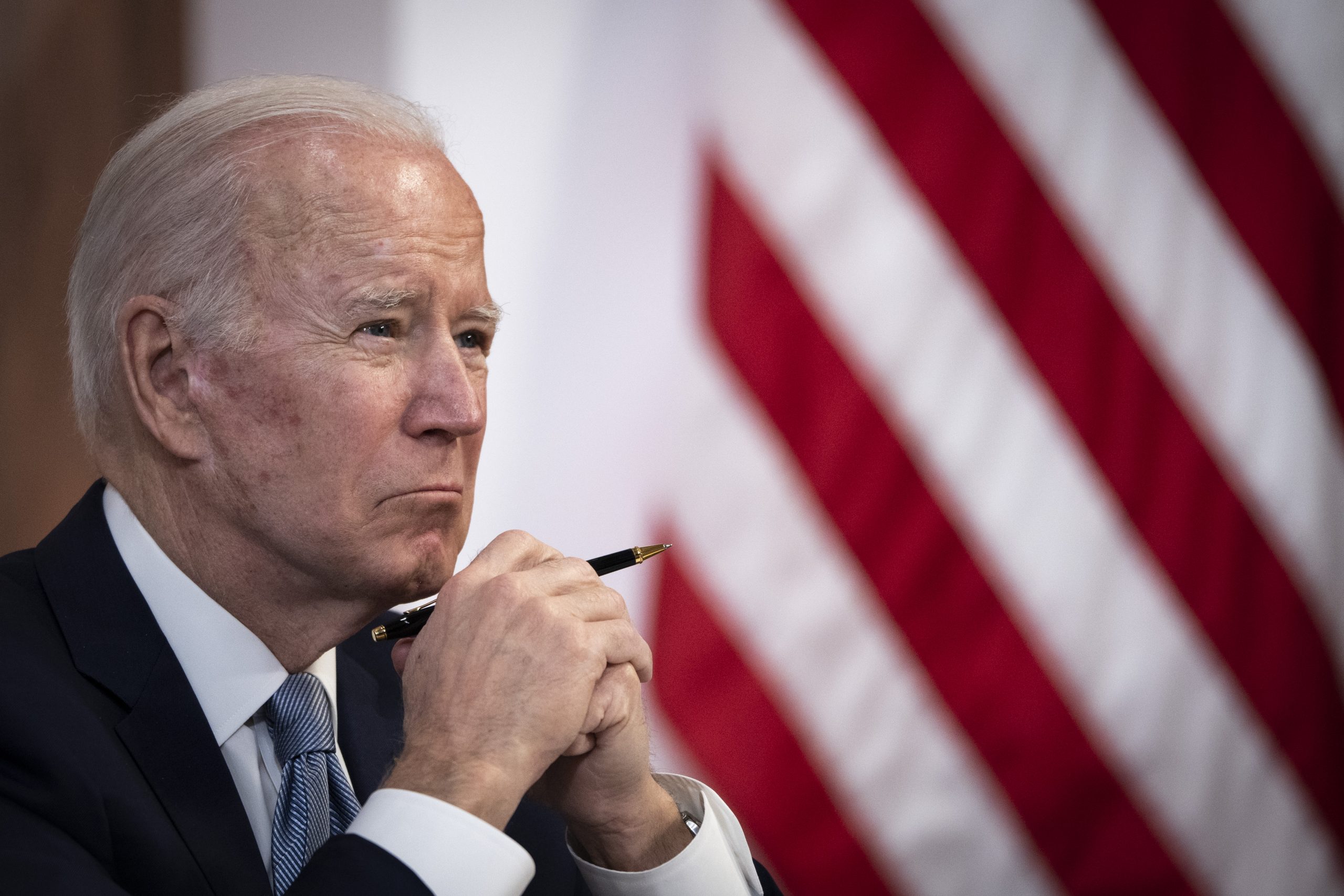President Joe Biden’s approval rating among 18-to-29-year-olds has dropped nearly 20 percentage points over the last year.
A national poll released Monday by the Institute of Politics at Harvard Kennedy School found Biden’s support among the demographic is underwater, with only 41 percent backing his job performance.
That is down from 46 percent approval for Biden in the Harvard Youth Poll this past fall and 59 percent approval in March 2021, shortly after the 46th president took office.
Biden’s support among 18-to-29-year-olds is down 18 percent from that first survey of his presidency.
In the 2020 election, 61 percent of young American voted for Biden, while 36 percent voted for then-President Donald Trump, according to a Tuft’s university analysis.
icymi
Harvard Youth Poll: 2022 elections on track to match 2018 turnout among young Americans; 40% prefer Democrats maintain control of Congress, 28% prefer Republicans; Biden’s job approval drops to 41% (@alanfzhang @dellavolpe @HarvardIOP) Details: https://t.co/P3ncK94vR5 pic.twitter.com/ZTbbJZYAum
— Opinion Today (@OpinionToday) April 26, 2022
The leading reason respondents cited for their disapproval of Biden’s current performance is “ineffectiveness” at 36 percent.
Fourteen percent said “not following through with campaign promises” and 10 percent said “not sharing my values” were the reason for their disapproval.
Further, 49 percent of young Americans say the country is on the wrong track, which is up significantly from the spring ’21 survey, when 35 percent said it was.
Biden gets his lowest numbers in his handling of the economy, with only 34 percent approving.
The Harvard Youth Poll found 18-to-29-year-old voters are looking to vote in similar numbers as they did in the 2018 midterms.
During the fall midterm elections, 55 percent prefer Democrats maintain control of Congress, while 34 percent want Republicans to take over.
It’s worth noting just 25 percent identify as Republicans among this age group, while 38 percent say they are Democrats.
Young Republicans are 7 percent more likely to vote in November compared to the 2018 midterms, while young Democrats are 5 percent less likely to do so.
The Harvard Youth Poll also found a sharp increase in respondents saying “political involvement rarely has tangible results” — 36 percent, up from 22 percent in 2018 — and their vote “doesn’t make a difference” — 42 percent, compared to 31 percent in 2018.
Former Bill Clinton pollster Mark Penn told Fox News on Tuesday that Biden’s dropping numbers among America’s young voters are reflective of where the president stands in general with the public.
“The problem is that the problems of the country have mounted up, inflation, immigration, crime, the end of the pandemic. All of those things have come together,” he said.
[firefly_embed]
[/firefly_embed]
Kellyanne Conway — who has worked as a Republican pollster and top aide to former President Donald Trump — argued the challenges young Americans face are in some ways specific to their stage in life.
“It’s not just anger, it’s angst,” she said. “When you look at young people, this is life interrupted for them. It started with these COVID lockdowns on their campuses and [in] classrooms and in their places at work.”
“But now they are telling pollsters like us, they can’t get on with buying their first home, with getting out of debt, with saving any kind of money or investing,” Conway continued.
“So that life interrupted is now spilling out over into their feeling about the party in charge,” she said.
In a Monday opinion piece for The New York Times, Penn addressed some of the angst nation’s citizens in general are feeling.
“In a rare convergence, America’s voters are not merely unhappy with their political leadership, but awash in fears about economic security, border security, international security and even physical security,” wrote Penn, who advised then-President Clinton after the Republicans took over the House and Senate in the 1994 midterms.
“Without a U-turn by the Biden administration, this fear will generate a wave election like those in 1994 and 2010, setting off a chain reaction that could flip the House and the Senate to Republican control in November, and ultimately the presidency in 2024.”
The Harvard Youth Poll was conducted from March 15-30 among 2,024 18-to-29-year-olds. The margin of error for the total sample is +/- 2.89 percent.
This article appeared originally on The Western Journal.

























 Continue with Google
Continue with Google